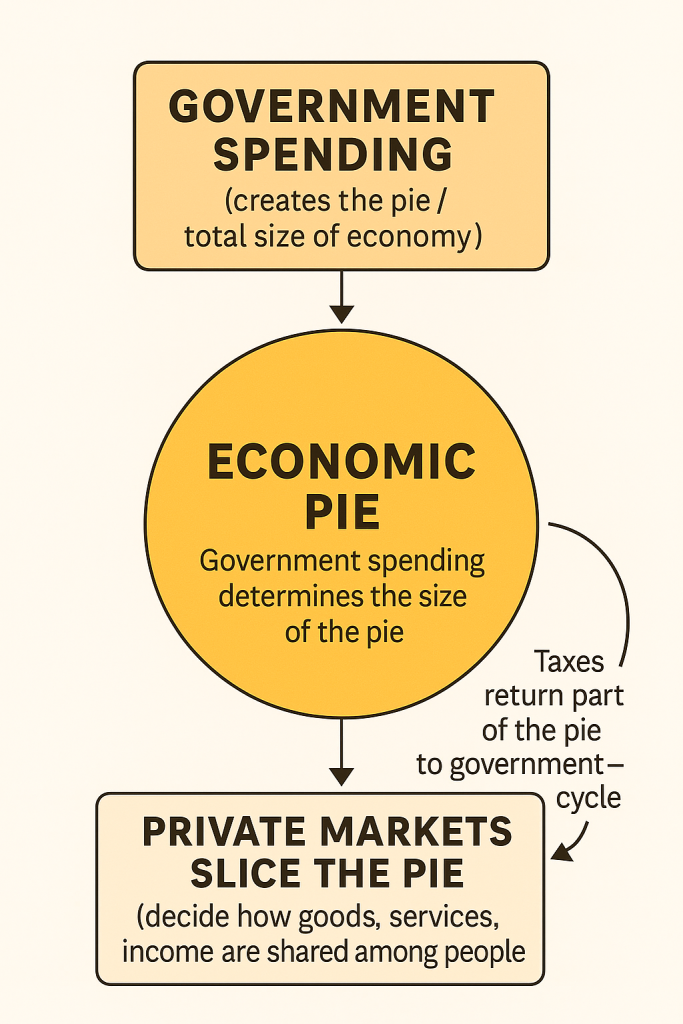When we think about markets today, we often picture busy places where strangers buy and sell goods and services. We take it for granted that these markets run on money. But if we look more closely, we see something important: before these markets could exist, there had to be money. And before there was money, there had to be a government or authority to create it.
In early societies, people may have swapped goods with people they knew—like trading grain for firewood with a neighbour. But this kind of direct swapping only worked in small communities, where people knew and trusted each other. As societies grew bigger, and trade involved strangers, this kind of barter no longer worked. That’s because strangers couldn’t easily agree on what to trade or how much it was worth.
That’s where money came in. Governments or rulers introduced money as a tool to organise society. They created coins, tokens or records, and declared that these were needed to pay taxes, fines, or other obligations. People accepted this money in trade because they knew they needed it for those government payments. So, money came first—created and spent by the government—and only then could markets with strangers work smoothly.
This leads to an important point: it’s government spending that decides how big the economic pie is in the first place. When a government spends, it puts money into the economy by paying workers, building things, and funding services. This creates jobs and incomes, which means people have money to trade, save and pay taxes. Without that initial spending, there wouldn’t be enough money in the system for markets to work.
Private markets don’t decide how big the pie is—they focus on how the pie gets divided up. Markets help decide who gets what slice, based on what people buy and sell. But none of that can happen until the government has created and spent the money that makes trading possible in the first place.
So, instead of thinking that governments need private markets to raise money through taxes before they can spend, it’s more accurate to say that private markets depend on government spending to get started and to grow. Government spending sets the size of the pie; private markets slice it up.
